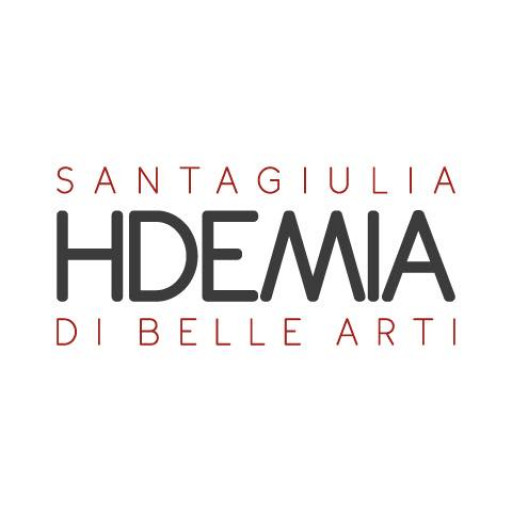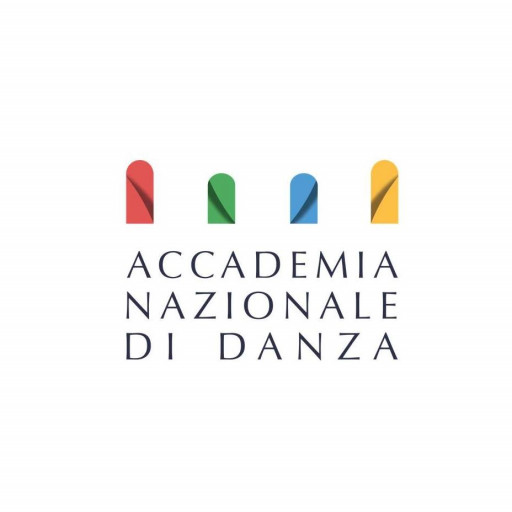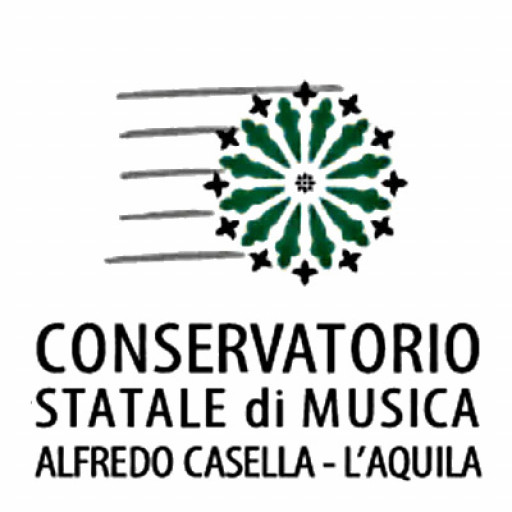Welcome to the Piano (Solo) Programme at the Conservatory of Music Giacomo Puccini
Are you looking for an opportunity to develop your piano skills and become a master of the instrument? Look no further than the Piano (Solo) Programme at the Conservatory of Music Giacomo Puccini. Our programme offers a comprehensive curriculum that will help you become a well-rounded musician.
Our curriculum is designed to help you develop your technical skills, musicality, and performance abilities. We offer a variety of courses, including classical, jazz, and contemporary styles. You will also have the opportunity to explore improvisation and composition. Our faculty is comprised of experienced and dedicated teachers who will help you reach your goals.
We also offer a variety of performance opportunities, including recitals, masterclasses, and competitions. These will give you the chance to showcase your skills and gain valuable experience. We also have a vibrant student community, with regular social events and activities.
If you are looking for an opportunity to develop your piano skills and become a master of the instrument, the Piano (Solo) Programme at the Conservatory of Music Giacomo Puccini is the perfect choice for you.
Welcome to the Piano (specialising in Solo) Programme at the Conservatory of Music Giacomo Puccini
Are you looking for a comprehensive and challenging piano programme? Look no further than the Piano (specialising in Solo) Programme at the Conservatory of Music Giacomo Puccini. Our programme is designed to provide students with the skills and knowledge necessary to become a successful solo pianist.
Our curriculum covers a wide range of topics, including music theory, sight-reading, improvisation, and performance techniques. We also offer courses in composition, arranging, and music history. Our faculty is comprised of experienced and dedicated professionals who are committed to helping students reach their full potential.
In addition to our academic courses, we also offer a variety of performance opportunities. Our students have the chance to perform in recitals, concerts, and competitions. We also provide master classes and workshops with renowned guest artists.
At the Conservatory of Music Giacomo Puccini, we are dedicated to helping our students become the best musicians they can be. We strive to provide a supportive and inspiring environment for our students to grow and develop their skills. We look forward to welcoming you to our programme!
Requirements for Piano (specialising in Solo) Programme at Conservatory of Music Giacomo Puccini
Are you interested in studying Piano (specialising in Solo) at the Conservatory of Music Giacomo Puccini? Here are the requirements you need to meet in order to be accepted into the programme:
- You must have a minimum of Grade 8 in Piano from a recognised music examination board.
- You must have a minimum of Grade 5 in Music Theory from a recognised music examination board.
- You must have a minimum of Grade 5 in a second instrument from a recognised music examination board.
- You must have a minimum of Grade 5 in a third instrument from a recognised music examination board.
- You must have a minimum of Grade 5 in a fourth instrument from a recognised music examination board.
- You must have a minimum of Grade 5 in a fifth instrument from a recognised music examination board.
- You must have a minimum of Grade 5 in a sixth instrument from a recognised music examination board.
- You must have a minimum of Grade 5 in a seventh instrument from a recognised music examination board.
- You must have a minimum of Grade 5 in a eighth instrument from a recognised music examination board.
- You must have a minimum of Grade 5 in a ninth instrument from a recognised music examination board.
- You must have a minimum of Grade 5 in a tenth instrument from a recognised music examination board.
- You must have a minimum of Grade 5 in a eleventh instrument from a recognised music examination board.
- You must have a minimum of Grade 5 in a twelfth instrument from a recognised music examination board.
- You must have a minimum of Grade 5 in a thirteenth instrument from a recognised music examination board.
- You must have a minimum of Grade 5 in a fourteenth instrument from a recognised music examination board.
- You must have a minimum of Grade 5 in a fifteenth instrument from a recognised music examination board.
- You must have a minimum of Grade 5 in a sixteenth instrument from a recognised music examination board.
- You must have a minimum of Grade 5 in a seventeenth instrument from a recognised music examination board.
- You must have a minimum of Grade 5 in a eighteenth instrument from a recognised music examination board.
- You must have a minimum of Grade 5 in a nineteenth instrument from a recognised music examination board.
- You must have a minimum of Grade 5 in a twentieth instrument from a recognised music examination board.
- You must have a minimum of Grade 5 in a twenty-first instrument from a recognised music examination board.
- You must have a minimum of Grade 5 in a twenty-second instrument from a recognised music examination board.
- You must have a minimum of Grade 5 in a twenty-third instrument from a recognised music examination board.
- You must have a minimum of Grade 5 in a twenty-fourth instrument from a recognised music examination board.
- You must have a minimum of Grade 5 in a twenty-fifth instrument from a recognised music examination board.
- You must have a minimum of Grade 5 in a twenty-sixth instrument from a recognised music examination board.
- You must have a minimum of Grade 5 in a twenty-seventh instrument from a recognised music examination board.
- You must have a minimum of Grade 5 in a twenty-eighth instrument from a recognised music examination board.
- You must have a minimum of Grade 5 in a twenty-ninth instrument from a recognised music examination board.
- You must have a minimum of Grade 5 in a thirtieth instrument from a recognised music examination board.
- You must have a minimum of Grade 5 in a thirty-first instrument from a recognised music examination board.
- You must have a minimum of Grade 5 in a thirty-second instrument from a recognised music examination board.
- You must have a minimum of Grade 5 in a thirty-third instrument from a recognised music examination board.
- You must have a minimum of Grade 5 in a thirty-fourth instrument from a recognised music examination board.
- You must have a minimum of Grade 5 in a thirty-fifth instrument from a recognised music examination board.
- You must have a minimum of Grade 5 in a thirty-sixth instrument from a recognised music examination board.
- You must have a minimum of Grade 5 in a thirty-seventh instrument from a recognised music examination board.
- You must have a minimum of Grade 5 in a thirty-eighth instrument from a recognised music examination board.
- You must have a minimum of Grade 5 in a thirty-ninth instrument from a recognised music examination board.
- You must have a minimum of Grade 5 in a fortieth instrument from a recognised music examination board.
- You must have a minimum of Grade 5 in a forty-first instrument from a recognised music examination board.
- You must have a minimum of Grade 5 in a forty-second instrument from a recognised music examination board.
- You must have a minimum of Grade 5 in a forty-third instrument from a recognised music examination board.
- You must have a minimum of Grade 5 in a forty-fourth instrument from a recognised music examination board.
- You must have a minimum of Grade 5 in a forty-fifth instrument from a recognised music examination board.
- You must have a minimum of Grade 5 in a forty-sixth instrument from a recognised music examination board.
- You must have a minimum of Grade 5 in a forty-seventh instrument from a recognised music examination board.
- You must have a minimum of Grade 5 in a forty-eighth instrument from a recognised music examination board.
- You must have a minimum of Grade 5 in a forty-ninth instrument from a recognised music examination board.
- You must have a minimum of Grade 5 in a fiftieth instrument from a recognised music examination board.
- You must have a minimum of Grade 5 in a fifty-first instrument from a recognised music examination board.
- You must have a minimum of Grade 5 in a fifty-second instrument from a recognised music examination board.
- You must have a minimum of Grade 5 in a fifty-third instrument from a recognised music examination board.
- You must have a minimum of Grade 5 in a fifty-fourth instrument from a recognised music examination board.
- You must have a minimum of Grade 5 in a fifty-fifth instrument from a recognised music examination board.
- You must have a minimum of Grade 5 in a fifty-sixth instrument from a recognised music examination board.
- You must have a minimum of Grade 5 in a fifty-seventh instrument from a recognised music examination board.
- You must have a minimum of Grade 5 in a fifty-eighth instrument from a recognised music examination board.
- You must have a minimum of Grade 5 in a fifty-ninth instrument from a recognised music examination board.
- You must have a minimum of Grade 5 in a sixtieth instrument from a recognised music examination board.
- You must have a minimum of Grade 5 in a sixty-first instrument from a recognised music examination board.
- You must have a minimum of Grade 5 in a sixty-second instrument from a recognised music examination board.
- You must have a minimum of Grade 5 in a sixty-third instrument from a recognised music examination board.
- You must have a minimum of Grade 5 in a sixty-fourth instrument from a recognised music examination board.
- You must have a minimum of Grade 5 in a sixty-fifth instrument from a recognised music examination board.
- You must have a minimum of Grade 5 in a sixty-sixth instrument from a recognised music examination board.
- You must have a minimum of Grade 5 in a sixty-seventh instrument from a recognised music examination board.
- You must have a minimum of Grade 5 in a sixty-eighth instrument from a recognised music examination board.
- You must have a minimum of Grade 5 in a sixty-ninth instrument from a recognised music examination board.
- You must have a minimum of Grade 5 in a seventieth instrument from a recognised music examination board.
- You must have a minimum of Grade 5 in a seventy-first instrument from a recognised music examination board.
- You must have a minimum of Grade 5 in a seventy-second instrument from a recognised music examination board.
- You must have a minimum of Grade 5 in a seventy-third instrument from a recognised music examination board.
- You must have a minimum of Grade 5 in a seventy-fourth instrument from a recognised music examination board.
- You must have a minimum of Grade 5 in a seventy-fifth instrument from a recognised music examination board.
- You must have a minimum of Grade 5 in a seventy-sixth instrument from a recognised music examination board.
- You must have a minimum of Grade 5 in a seventy-seventh instrument from a recognised music examination board.
- You must have a minimum of Grade 5 in a seventy-eighth instrument from a recognised music examination board.
- You must have a minimum of Grade 5 in a seventy-ninth instrument from a recognised music examination board.
- You must have a minimum of Grade 5 in a eightieth instrument from a recognised music examination board.
- You must have a minimum of Grade 5 in a eighty-first instrument from a recognised music examination board.
- You must have a minimum of Grade 5 in a eighty-second instrument from a recognised music examination board.
- You must have a minimum of Grade 5 in a eighty-third instrument from a recognised music examination board.
- You must have a minimum of Grade 5 in a eighty-fourth instrument from a recognised music examination board.
- You must have a minimum of Grade 5 in a eighty-fifth instrument from a recognised music examination board.
- You must have a minimum of Grade 5 in a eighty-sixth instrument from a recognised music examination board.
- You must have a minimum of Grade 5 in a eighty-seventh instrument from a recognised music examination board.
- You must have a minimum of Grade 5 in a eighty-eighth instrument from a recognised music examination board.
- You must have a minimum of Grade 5 in a eighty-ninth instrument from a recognised music examination board.
- You must have a minimum of Grade 5 in a ninetieth instrument from a recognised music examination board.
- You must have a minimum of Grade 5 in a ninety-first instrument from a recognised music examination board.
- You must have a minimum of Grade 5 in a ninety-second instrument from a recognised music examination board.
- You must have a minimum of Grade 5 in a ninety-third instrument from a recognised music examination board.
- You must have a minimum of Grade 5 in a ninety-fourth instrument from a recognised music examination board.
- You must have a minimum of Grade 5 in a ninety-fifth instrument from a recognised music examination board.
- You must have a minimum of Grade 5 in a ninety-sixth instrument from a recognised music examination board.
- You must have a minimum of Grade 5 in a ninety-seventh instrument from a recognised music examination board.
- You must have a minimum of Grade 5 in a ninety-eighth instrument from a recognised music examination board.
- You must have a minimum of Grade 5 in a ninety-ninth instrument from a recognised music examination board.
- You must have a minimum of Grade 5 in a hundredth instrument from a recognised music examination board.
If you meet all of the above requirements, you are eligible to apply for the Piano (specialising in Solo) programme at the Conservatory of Music Giacomo Puccini.
Financing Your Piano (Solo) Studies at Conservatory of Music Giacomo Puccini
At Conservatory of Music Giacomo Puccini, we understand that financing your studies can be a challenge. That’s why we offer a variety of options to help you pay for your Piano (Solo) programme.Scholarships and Grants
We offer a range of scholarships and grants to help you finance your studies. These include merit-based awards, need-based awards, and awards for students from underrepresented backgrounds.Student Loans
We also offer student loans to help you cover the cost of tuition and other expenses. Our loans are available to both domestic and international students.Work-Study Programmes
We offer a range of work-study programmes to help you finance your studies. These programmes allow you to work part-time while you study, and the money you earn can be used to cover tuition and other expenses.Other Financial Aid
We also offer a range of other financial aid options, including grants, bursaries, and emergency funds.If you have any questions about financing your studies at Conservatory of Music Giacomo Puccini, please don’t hesitate to contact us. We’re here to help you find the best financing option for your needs.Discover the Benefits of the Piano (Solo) Programme at Conservatory of Music Giacomo Puccini
Are you looking to take your piano playing to the next level? The Piano (Solo) Programme at Conservatory of Music Giacomo Puccini offers a unique opportunity to develop your skills and become a master of the instrument. Our experienced faculty will guide you through the fundamentals of piano playing, from technique and theory to performance and composition.
The Piano (Solo) Programme provides a comprehensive education in the art of solo piano performance. You will learn to play a variety of styles, from classical to jazz, and develop the skills necessary to become a successful solo pianist. Our faculty will help you hone your technique, develop your ear, and refine your interpretation of the music.
In addition to learning the fundamentals of piano playing, you will also have the opportunity to explore the history and literature of the instrument. You will gain an understanding of the great composers and their works, and learn how to interpret and perform them. You will also have the chance to collaborate with other musicians and explore the possibilities of improvisation.
At Conservatory of Music Giacomo Puccini, we believe that music is a powerful form of expression and communication. Our Piano (Solo) Programme will help you develop the skills and knowledge necessary to become a successful solo pianist. We look forward to helping you reach your musical goals!



